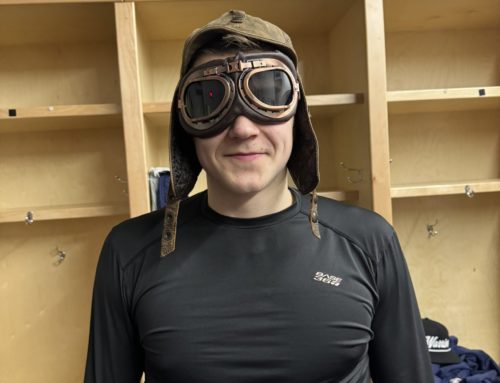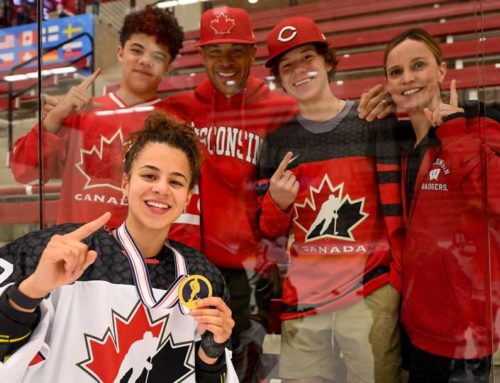Prospect Ramblings – Development for Playoff Success
Hayden Soboleski
2016-05-22
Is there a learning curve when it comes to youngsters performing in the playoffs? Taking a look in this Sunday's Ramblings…

***
Every year, both rookie and veteran players are judged for their playoff performance, hailed as clutch and poised or as chokers. This is inevitably often tied to a team's result rather thn the effort of the skater himself, but if we were to judge a player's playoff performance based only on his point production (this is a fantasy hockey website after all), is there a learning curve based on age or experience? I want to take a look.
First of all: there are a huge amount of variables here. Playoff matchups are big one, as players on bad teams will be forced to play the best of the best, thus lowering their chances of being a top scorer. What team a player dresses for is another huge one, as in the opposite case of my last point – a player on the best regular season team will get to play weaker opponents. Unfortunately there is nothing I can do about these facts of hockey life. My investigation will be performed regardless, with the aknowledgement that everything should be taken with a grain of salt, because there are many factors at play here.
My first chart: I've taken this season's top playoff performers so far, and shown their point production, their age, and their years of playoff experience:
| Player | Points | Age | Prior Playoff Experience (Years) |
| Couture | 20 | 27 | 5 |
| Burns | 18 | 31 | 5 |
| Pavelski | 17 | 31 | 8 |
| Kessel | 17 | 28 | 3 |
| Kucherov | 16 | 22 | 2 |
| Johnson | 15 | 25 | 2 |
| Benn | 15 | 26 | 1 |
| Bonino | 13 | 28 | 4 |
| Spezza | 13 | 32 | 8 |
| Tarasenko | 13 | 24 | 2 |
| Thornton | 13 | 36 | 14 |
| Hedman | 13 | 25 | 3 |
| Fabbri | 13 | 20 | 0 |
| Backes | 13 | 32 | 5 |
| Crosby | 13 | 28 | 8 |
| Wilson | 13 | 26 | 4 |
I counted a "prior year of playoff experience" as a postseason where the player dressed for at least 2 games (potentially half a series). This count obviously does not include the current playoffs, since we're looking at whether their past experience is benefiting them now. Let's take a look at what we can see just from the numbers:
1. Only three players on the list (19%) are under 25 years old. The list average is 27.6 years old. Given how fast young players are developing into key components of their clubs, I'm a bit surprised that there aren't more early-20s players leading the way.
2. Only two players on the list (13%) have less than 2 years of prior playoff experience. More than half the list has over 4. This does seem to imply that the top playoff performers are more likely to be veterans who have been there before.
Its very possible that the two points above are connected – that since players with playoff experience are more likely to lead the way, it is therefore unlikely that a rookie of young prospect would be among that list. Or vise versa – that with age comes the ability to score in the playoffs, and therefore one would have more playoff years under their belt by then. I personally believe the former to be more likely; we treat playoffs as sacred in the hockey world and there is something very fitting about the numbers suggesting that the best performers are the ones who have been through the battle before.
***
Ok, we can see a few interesting points from looking at the leaders. But what about looking at the TOP 100 players in the postseason, not just the ones lighting it up? I won't include my massive table of names and information, instead I'll let you skip to the good part:


The lesson here: There does not appear to be a real connection between age and playoff production when looking at a larger sample size. You could argue that there appears to be a decline after the mid-30s, and a slight increase in the mid-20s, but nothing strong enough to bank on. As for prior playoff experience, there is a significant (in my opinion) jump in the number of players scoring well after the 3 year mark. Again however, this is a subtle increase and may not be worth banking on. From the first table of data however, we did see that its more than likely that top playoff performers will be players with at least a few years of playoff experience already obtained.
As disappointing as it is to not see an obvious line when observing this kind of data, there are lessons learned regardless. Knowing not to be sucked in to a certain old-school way of thinking is valuable, and hopefully this keeps people more open-minded when preparing for playoff pools in the future.
***
As always, thanks for reading, and best of luck in all of your summer drafts!
Hayden Soboleski
@soboleskih






